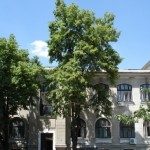Published online before print August 12, 2016, doi: 10.4049/jimmunol.1601040
Systemic inflammatory response syndrome is a whole-body reaction to a triggering insult that often results in life-threatening illness. Contributing to the development of this inflammatory cascade are numerous cellular partners, among which NK cells were shown to play a key role. Accumulating evidence points to organ-specific properties of systemic inflammation and NK cells. However, little is known about compartment-specific activation of NK cells during systemic inflammatory response syndrome or the relative contribution of NK cell–intrinsic properties and microenvironmental cues. In this study, we undertook a sequential characterization of NK responses in the spleen, lungs, bone marrow, peritoneum, and blood using a mouse model of endotoxemia. We report that, despite similar systemic dynamics of NK cell responses, expression of activation markers (CD69 and CD25) and effector molecules (IFN-γ, granzyme B, and IL-10) display organ-specific thresholds of maximum activation. Using adoptive transfers of spleen and lung NK cells, we found that these cells have the capacity to quickly adapt to a new environment and adjust their response levels to that of resident NK cells. This functional adaptation occurs without significant alterations in phenotype and independently of subpopulation-specific trafficking. Thus, using a dynamic in vivo–transfer system, to our knowledge our study is the first to report the compartmentalization of NK cells responses during systemic inflammation and to show that NK cell–intrinsic properties and microenvironmental cues are involved in this process, in a sequential manner.




